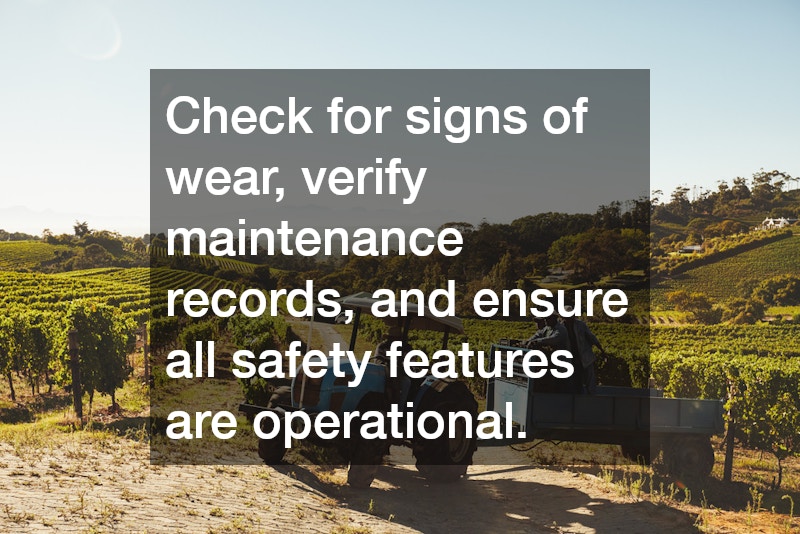
Lowboy trailers, known for their unique design and ability to carry heavy equipment, play a crucial role in the heavy hauling sector. For businesses and individuals requiring cost-effective solutions, renting lowboy trailers can be the best option, offering both flexibility and affordability.
The advantages of renting include access to well-maintained trailers and the ability to select the right model for specific needs without significant upfront investments. This article will address common inquiries surrounding lowboy trailer rentals, making it simpler for you to make informed decisions.
Choosing rental services over purchasing can significantly lower operational costs, especially for those needing trailers only occasionally. The reduced financial commitment allows greater flexibility in project planning and execution.
What is a Lowboy Trailer and Why Use One?
Definition and Features
A lowboy trailer is a type of flatbed trailer characterized by its drop-deck design, allowing it to transport taller loads without exceeding height restrictions. This distinct structure includes a lower deck, often sitting just inches above the ground, enhancing its stability and weight-bearing capacity.
Designed to haul heavy machinery like bulldozers and large construction equipment, lowboy trailers can handle loads that other trailers simply cannot accommodate. Their robust build ensures that heavy and oversized items are transported safely and efficiently.
With a typical weight capacity of 40,000 to 80,000 pounds, depending on the number of axles, lowboy trailers stand out for their capability to tackle significant loads. Their wide range of applications underscores their importance in industries such as construction, mining, and agriculture.
Benefits of Using Lowboy Trailers for Heavy Hauling
Lowboy trailers offer unparalleled versatility, making them suitable for a variety of cargo requirements. Their design minimizes load limitations, allowing for the transportation of large equipment that cannot be disassembled easily.
The ease of loading heavy equipment onto a lowboy trailer is a significant benefit. Because the deck is low to the ground, it reduces the risk of accidents and minimizes the need for additional loading equipment like cranes.
Safety is paramount when handling oversized loads, and lowboy trailers are engineered to enhance this. They ensure that even cumbersome items can be transported securely, complying with road safety regulations and minimizing delays.
How to Find Affordable Lowboy Trailer Rentals?
Researching Rental Providers
When searching for reputable trailer rental companies, word-of-mouth recommendations and online reviews are invaluable resources. These insights help identify providers known for reliability and quality service.
Earning a rental company’s reputation through accolades and commendations is a good indicator of quality. Investigating their history and past customer experiences can aid in distinguishing between average and exemplary service.
In addition, consider looking at companies that have established partnerships with heavy construction firms. Such connections often indicate a company’s capability to handle substantial and specific rental requirements.
Comparing Rental Prices and Services
Comparing rental costs is essential, but understanding the nuances of rental agreements is equally important. Some contracts may offer hidden fees, while others could include additional perks like maintenance or roadside assistance.
Don’t just focus on price; evaluate the overall package to assess value. Included services such as regular upkeep and dedicated customer support can make a difference in ensuring smooth operations.
A comprehensive approach to evaluating rental options ensures that you receive not only competitive rates but also superior service. This holistic view results in a more profitable and hassle-free rental experience.
What Factors to Consider Before Renting a Lowboy Trailer?
Understanding Your Hauling Needs
Assessing the specifics of your hauling requirements is the first step in choosing an appropriate trailer. Consider elements like cargo dimensions, weight, and delivery schedules to make an informed decision.
Your project’s nature—whether it involves regular or occasional hauls—affects the choice of rental. Understanding these factors enables you to select a trailer matching your exact needs, promoting operational efficiency.
This thoughtful alignment of needs with equipment reduces the likelihood of operational challenges and can contribute to long-term success. It ensures resources are properly allocated, boosting productivity and cost-effectiveness.
Checking Equipment Condition and Safety
Prior to confirming a rental, inspecting the trailer’s condition is vital. Check for signs of wear, verify maintenance records, and ensure all safety features are operational.
Compliance with local regulations is essential to avoid setbacks during transport. Adhering to rules reduces risks associated with oversized or heavy loads and maintains road safety standards.
Reviewing safety protocols with the rental provider ensures both parties understand the expectations. A well-maintained and legally compliant trailer is fundamental to successful heavy hauling operations.
In summary, renting lowboy trailers offers a practical solution for fulfilling heavy hauling requirements without the hefty expense of ownership. Decisions grounded in thorough research maximize the benefits of rentals, ensuring that businesses achieve project objectives affordably and safely.
Understanding the specifics of different trailers, from rental prices to maintenance facilities, is essential for informed selections. Consistently comparing options allows for the selection of the most suitable and budget-friendly services.
Investing time in identifying reputable rental providers and comprehensively evaluating your hauling needs pays off. By doing so, you ensure that your choice not only meets developmental requirements but also adheres to stringent safety standards.

